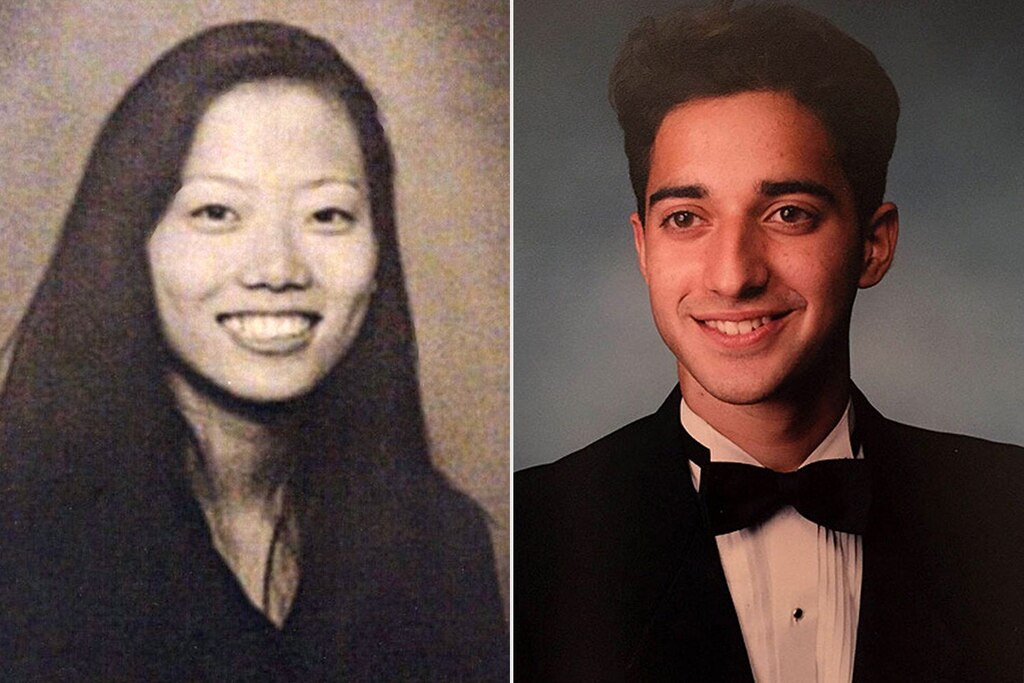Adnan Syed, the subject of the hit podcast “Serial,” is asking a judge to reduce his sentence in the killing of Hae Min Lee, his ex-girlfriend and classmate at Woodlawn High School whose body was discovered in 1999 in Leakin Park.
Syed, now 43, was found guilty in 2000 in Baltimore Circuit Court of first-degree murder, robbery, kidnapping and false imprisonment, and sentenced to life in prison plus 30 years.
At the time of the killing, Syed was 17. He has always maintained his innocence.
In 2022, a Baltimore judge threw out Syed’s conviction and ordered him to immediately be released from prison. The Maryland Supreme Court later reinstated his conviction but has allowed him to remain free pending a new hearing in the case.
Now, Syed is seeking a sentence reduction under the Juvenile Restoration Act while he continues to fight to prove his innocence. The law created a process for people who’ve served at least 20 years in prison for crimes they committed as children to get back into court and demonstrate that they’ve changed.
“This filing is a small step toward ensuring that Adnan’s custody status is stabilized and his freedom is safeguarded,” said Assistant Public Defender Erica Suter, one of Syed’s attorneys and director of the Innocence Project Clinic at the University of Baltimore School of Law, in a statement. “We maintain his innocence and our mission of proving that hasn’t changed.”
Suter said at this time “our concerns are focused on Adnan’s liberty.”
“We believe the Court will see that Adnan’s remarkable accomplishments and good conduct, both during his incarceration and since release, support a sentence reduction,” she said. “If granted, we can turn our focus back to vacating his unjust conviction, again.”
In its first year, “Serial” was downloaded more than 100 million times. People continue to passionately follow the case.
Meanwhile, there have been a number of twists and turns since 2014 when the podcast came out.
The Baltimore State’s Attorney’s Office in 2022 filed a motion to throw out Syed’s conviction, citing the outcome of an almost one-year investigation.
Circuit Judge Melissa M. Phinn granted the motion and ordered Syed to immediately be released from prison.
Young Lee, Hae Min Lee’s brother, had asked the judge to delay the hearing for one week so he could attend in person. Phinn denied that request but allowed him to deliver a statement over Zoom.
“This is not a podcast for me,” he said. “This is real life.”
Next, Steve Kelly, Young Lee’s attorney at the time, took steps to appeal and asked the courts to put the case on hold. But then-Baltimore State’s Attorney Marilyn Mosby dropped the charges against Syed, citing the results of new DNA testing.
The Appellate Court of Maryland ruled 2-1 that Young Lee’s rights to notice and attendance were violated and moved to reinstate Syed’s conviction. In a 4-3 decision, the Maryland Supreme Court upheld that ruling and ordered a new hearing before a different judge.
Circuit Judge Jennifer B. Schiffer is now presiding over the case. She has given prosecutors until Feb. 28 to file anything supplemental.
“We are aware of the Motion for Reduction of Sentence Pursuant to the Juvenile Restoration Act filed on behalf of Mr. Syed,” said James Bentley, a spokesperson for the Baltimore State’s Attorney’s Office, in a statement. “Our office will review the motion and respond in the appropriate manner.”
In a statement, David Sanford, chairman of Sanford Heisler Sharp McKnight LLP and an attorney for the family of Hae Min Lee, wrote that loved ones have always stated that they’d be the first to call for Syed’s freedom if there was “new and compelling evidence.”
But Sanford said defense attorneys and prosecutors have “not presented a shred of new, let alone compelling, evidence which would warrant overturning a murder conviction that has withstood appeals for over two decades.”
Sanford described what previously unfolded in the case as a charade. Syed’s attorneys, he said, have not produced any new evidence but are now seeking mercy for their client.
“We will confer with the family of Hae Min Lee and present our position to the court in the days ahead,” Sanford said.

In the motion for reduction of sentence filed Friday, Suter and her co-counsel, Brian Zavin, chief attorney of the Maryland Office of the Public Defender’s Appellate Division, wrote that their client has been a law-abiding citizen since his release and “successfully navigated reentry and lived a positive and productive life.”
“For the past two years, Mr. Syed and his family have lived in limbo, uncertain if he would remain free or be returned to prison,” they said. “Despite the stress of this circumstance, Mr. Syed has conducted himself admirably.”
Today, Syed works at the Georgetown University Prisons and Justice Initiative, attends services at his mosque and serves as a valued member of the community. He’s also helped take care of his parents and those of his wife, Suter and Zavin said.
People who maintain their innocence, they said, are eligible for a sentence reduction.
“Mr. Syed maintains his innocence as he has done since the day he was charged with Hae Min Lee’s murder,” Suter and Zavin said. “But even if his innocence could reasonably be disputed, one thing cannot: Mr. Syed, the 43-year-old man before this Court, is not the same person as Adnan, the 17-year-old child finishing high school in 1999.”



Comments
Welcome to The Banner's subscriber-only commenting community. Please review our community guidelines.